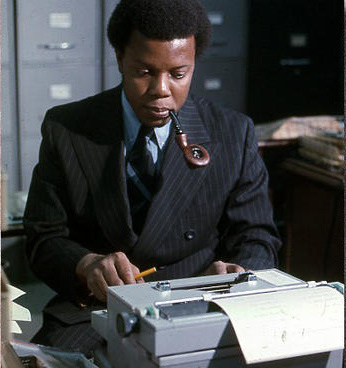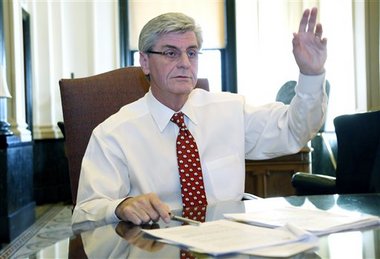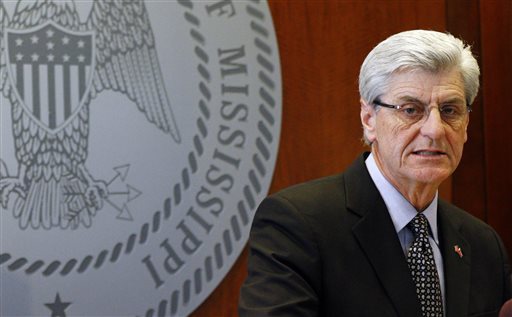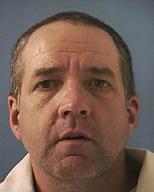
From The Chicago Sun-Times
Lacy was from Coahoma County, Miss.
Lacy J. Banks was an unconventional pioneer.
He was a trailblazer as the first African-American sportswriter for the Sun-Times, a job that led him to cover seven world championships involving Chicago teams.
He was a Baptist preacher for nearly 60 years, too, a side of himself he could uniquely intertwine into his career as a journalist.
And beginning in 2008 he became his own journalism subject, chronicling his health battles with prostate cancer, a brain tumor and heart disease in blogs he wrote for the Sun-Times.
He won his first two battles, but the last would conquer him. Banks, 68, died Wednesday, March 21.
Banks was the longest-serving sportswriter on the Sun-Times’ staff, joining the paper on Aug. 7, 1972, and remaining on staff until his death. For most of that time, he covered the Bulls and the NBA, ranking among the longest-tenured pro basketball writers in the country. His time on the beat spanned from the mid-1980s to last season, when he covered the Bulls into the NBA postseason.
His time spanned all of Michael Jordan’s career and the start of Derrick Rose’s. Along the way, he deftly balanced a reporter’s objectivity with the personal bonds that grew between him and those he covered.
‘‘He was more than a reporter on the sidelines,’’ Bulls chairman Jerry Reinsdorf said. ‘‘He cared deeply about the teams he covered and the profession that he represented. While we didn’t always agree with his position — as is natural — we never questioned his enthusiasm for the Bulls or the city of Chicago.’’
There’s no question covering the Jordan era was the pinnacle of Banks’ career. In a 2005 column, Banks wrote: ‘‘In those glorious days, I could brag, ‘They pay me to watch Michael Jordan.’ Yeah, they fly me around the country — even flew me to Paris once — book me in the best hotels, give me courtside seats and then pay me to watch Jordan.’’
Banks’ long tenure covering the NBA made him a unique part of the basketball world.
‘‘Lacy was one of the true pioneers in the basketball reporting business,’’ said Sam Smith, a former Tribune sportswriter. ‘‘I traveled thousands of miles with Lacy on the NBA and boxing beats over two decades. He always asked the question most were afraid to ask and which the public most wanted to know.’’
To many players in the NBA, Banks was more than a reporter.
‘‘He was a great friend, and we spent a lot of time calling my mom on Sundays and praying with her and just doing some great deeds for her and my family,’’ former Bulls star Scottie Pippen said. ‘‘He’s one of those reporters who I had a lot of respect for. We definitely had a great relationship throughout my career and to this day.’’
Chicago native and Basketball Hall of Famer Isiah Thomas knew Banks even before his NBA career began.
‘‘We knew him from the church and the community,’’ said Thomas, now the coach at Florida International. ‘‘He and my mom got to be real close. When things would be rough for us at times, he’d pick up the phone and call, say a prayer with us.
“Our conversations weren’t always even about the NBA or basketball. We were young men coming into tremendous wealth and fame, and not only was he a reporter, but he was a mentor. He was a leader in the journalism profession but also a leader in the community.’’
Pat Williams, the senior vice president of the Orlando Magic, first met Banks when Williams was the young general manager of the Bulls in the early 1970s.
‘‘Lacy took over the beat when we had four very vibrant newspapers in Chicago,’’ Williams said. ‘‘He would crawl and scrape under every rock to get information. He was very competitive.
‘‘And then there was his life as a preacher — ‘Rev. Lacy.’ That was a whole other world.’’
To his colleagues, Banks was both comrade and mentor.
‘‘He was so respected in the Bulls/NBA world,’’ veteran Sun-Times sportswriter Herb Gould said. ‘‘He could locate luminaries like Jerry Reinsdorf, Phil Jackson and Michael Jordan, and he could elicit interesting comments from them on all manner of subjects. Even when Michael wasn’t doing media interviews last spring, Lacy prodded a few nuggets from him in the United Center and turned it into a delightful column.
‘‘Lacy was one of the sunniest, most enthusiastic people I’ve ever had the pleasure of knowing.’’
In the competition-driven world of reporting, Banks could remind others that the business was also about the joy of the game and the people in it.
‘‘Every time I walked into a press room and saw Lacy, I’d smile,’’ Sun-Times columnist Rick Telander said. ‘‘The first thing I’d say was, ‘What’s up, Reverend?’ And he always had something nice and wonderful to say.
‘‘He never lost his edge as a reporter. He was battling Michael Jordan to the very end. He was one of those hellfire and brimstone ministers in the locker room. He would give them a sermon in his questions.’’
Banks was respected by his competitors as well as his colleagues.
‘‘His rapport with Michael was always entertaining,’’ former Tribune sportswriter Melissa Isaacson said. ‘‘Though I quickly learned that it was the ultimate compliment for Michael to give Lacy a hard time, it was also done with an underlying level of respect.’’
Banks covered the rise of the Bulls through their six titles. Before that, though, he covered Chicago’s first champion of the 1980s, the 1981 Sting soccer team. He also covered hockey, women’s pro basketball, college football and basketball and professional boxing.
Banks was born in Lyon, Miss., and graduated from Kansas with a degree in French. He was fluent in French and Spanish and performed as a multilingual concert tenor. He co-authored a three-volume book on African-American history, and his book Winning Boxing included a foreword written by Muhammad Ali. He also served as a naval officer for three years during the Vietnam War.
He and his wife, Joyce, were married 43 years, with three daughters and five grandchildren. – Toni Ginnetti




Be the first to comment